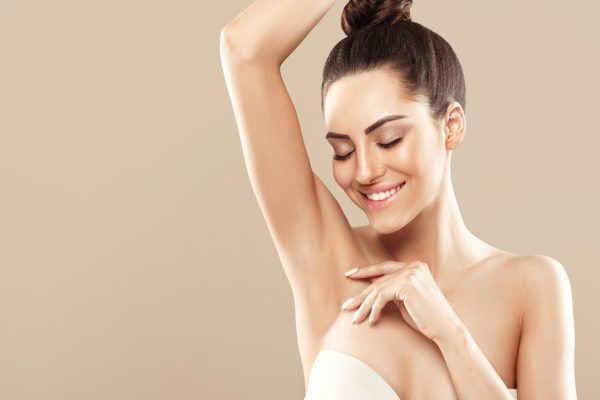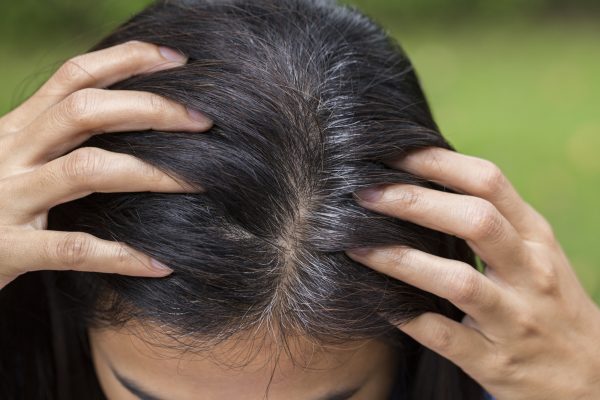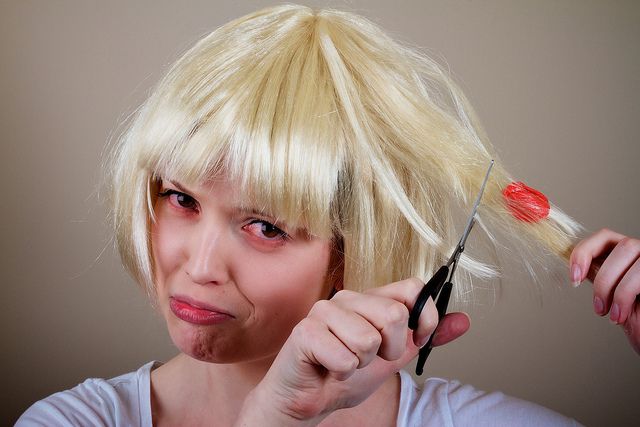You’re probably already familiar with the basic functions of conditioners. They’re designed to soften your hair while they coat it with all sorts of helpful ingredients. But how do they work, exactly? And what are the best kinds to use?
Conditioners are something we’ve all been taught to use, despite the extra five minutes it takes in the shower. Most of us have it in our hair-washing routines.
But do you know why a conditioner is necessary? What exactly does it do to your hair? Is it also worthwhile to make the investment? Here’s all you need to know about conditioners and why they’re such an important component of your hair care routine.
What Is a Conditioner and What Is It Used For?
A conditioner is a creamy mask-like treatment that is designed to enhance the texture of your hair. Its purpose is to moisturize and nourish your hair, making it seem softer. It also lowers friction between your hair strands, making it simpler to brush after a hair wash.
When you condition your hair, a layer forms throughout the hair shaft, making it simpler to maintain and style. Your conditioner is what gives your hair its shine after washing it.
6 Steps to Applying Hair Conditioner
- In the shower, fully rinse away all of your shampoo.
- Every brand has a different quantity that they suggest. Use the suggested amount listed on the bottle.
- Apply no conditioner to your scalp. Begin applying the product from the shaft and work your way down to the edges.
- Run your fingers or a wide-tooth comb through your hair all the way down.
- Allow the conditioner to sit for 1-2 minutes.
- Rinse well. No product should be left on.
How Long Should You Leave Conditioner on?
If you’re using a rinse-off conditioner, leave it on for around 2-3 minutes while you’re in the shower. However, for a better idea, check the instructions on the container of your conditioner. Some conditioners may take a little longer to soak into your hair.
How Much Conditioner Do You Need?
Different brands prescribe different amounts, which are often indicated on the label. The amount of conditioner you apply is determined mostly by the thickness and length of your hair. Make certain that no area of your hair, chin-down, is overlooked.
- If you have short hair (above the shoulder length), apply one dab of conditioner the size of a blueberry.
- Use a quantity equal to the size of two blueberries if your hair is shoulder length.
- If you have long hair, depending on how long and thick it is, you should usually apply an amount the size of three blueberries.
Conditioner Types
Conditioners for rinsing out
This is the most prevalent variety, which the majority of people use on a daily basis.
Conditioners that rinse away are frequently applied on moist hair (usually after shampooing). The product is applied for a few minutes before being completely washed off.
They make your hair easier to manage and seem softer and more glossy than it would without. Rinse-out conditioners also protect your hair cuticles from heat damage.
Conditioners that go deep
Deep conditioners, which are high in moisturizing characteristics, can be used to repair dry and damaged hair. When preparing these conditioners, essential oils, butters, and other hydrating substances that help heal damaged and dry hair are popular choices.
Deep conditioners are normally kept on for around 30 minutes (similar to a hair mask) before being properly washed out.
They try to hydrate and restore damaged hair. These aren’t the greatest solution if you have regular or greasy hair. They might make your hair feel oily and weigh it down.
Leave-on conditioners
Leave-in conditioners are light and leave a protective coating on your hair. They are applied to your hair after you wash and assist to keep it silky. They also untangle the hair quickly, making styling it simpler. These conditioners hydrate your hair while also protecting it from external aggressors.
Masks for your hair
These are more like a facial mask for your hair, hydrating and nourishing it. The lotion enters the cuticles of the hair, feeding it with protein and moisturizing elements. There are several masks available for various hair types. Apply a hair mask to your hair twice a week for 15-20 minutes before washing.
A hair mask’s objective is to hydrate and nurture your hair. These masks hydrate and mend your hair, making it healthier and more voluminous over time.
Hair Conditioners Made at Home
Consider utilizing these natural sources to condition your hair if you enjoy using natural components on your skin and hair. These homemade hair conditioners may be useful in achieving healthy, shiny hair:
Conditioner made with eggs and vinegar
Egg is a conditioner that nourishes and shines your hair. Honey is a natural moisturizer, and vinegar strengthens your hair. For best results, use this paste once or twice a week.
How To Make it:
- Mix 2-3 eggs with a spoonful of vinegar.
- Whisk in a teaspoon of olive oil to the mixture.
- 1 tablespoon lemon juice, 1 tablespoon honey
- Mix all of the ingredients together.
- For 15 minutes, apply the paste to the tips of your hair (chin down).
Hair mask made from bananas
Banana contributes to frizz-free hair.
How To Make it:
- Mash one banana well.
- 3 tablespoons of honey, olive oil, and milk
- Mix well, then add one egg to the mixture.
- To make a paste, combine all of the components.
- Apply the paste on your hair’s tips (chin down).
- Allow it to sit for 20-30 minutes.
Yogurt and egg conditioner made at home
Yogurt, which is high in protein and lactic acid, cleanses the scalp and nourishes the hair, making it smoother.
How To Make it:
- To one beaten egg, add 6 tablespoons yoghurt.
- Massage the mixture into your scalp and hair gently.
- Allow it to sit for about 20 minutes.
Conditioner with coconut oil and honey
Coconut oil is a natural emollient that keeps your hair moisturized. It keeps your hair smooth and shinier.
How To Make it:
- 1 tablespoon coconut oil, 1 tablespoon honey, 1 tablespoon lemon juice
- 2 tablespoons curd should be added to the mixture.
- Leave the mixture on for 15 minutes before rinsing.
Is Conditioning Required?
Consider this: your shampoo does for your scalp what your cleanser does for your face, and your conditioner serves as a moisturizer. Conditioner is essential for keeping your hair nourished and silky. It protects against dry, lifeless hair that is prone to breakage.
Choosing the proper conditioner for your hair type, on the other hand, is critical. Your hair care products should be tailored to your hair type in order to strengthen and enhance its texture over time.
The typical pH of your hair is slightly acidic. The pH of your conditioner should be between 4.5-7. This will keep it from inflicting long-term harm.
Is it Bad to Over-Condition Your Hair?
When you condition your hair, a layer forms down the length of your hair shaft. This is what gives your hair luster and makes it manageable and simple to brush. Over-conditioning your hair, on the other hand, is just as terrible as not conditioning it at all.
This buildup may reduce the effectiveness of other products. This occurs because this layer prevents other items, such as essential oils and serums, from accessing your hair shaft.
If you experience any of the following symptoms, you’ve most likely over-conditioned your hair.
- Hair with less volume and weight
- Style and management are difficult.
- Every time you tie your hair up, it slips out from under the pins.
How to Remove Over-conditioned Hair
For the first few washes, use less conditioner.
Once a month, rinse your hair with a diluted apple cider vinegar solution. Ideally, one part apple cider vinegar and two parts water.
To remove the excess layers of conditioner, use a clarifying shampoo.
Avoid using too much conditioner until all of the additional layers have been removed.
The Bottom Line
Hair conditioners hydrate and restore your hair, making it seem smooth and lustrous. Conditioners come in a variety of forms, including rinse-out, deep, and rinse-in conditioners, as well as hair masks.
You should get a conditioner with a pH level between 4.5-7 that is appropriate for your hair type. Overconditioning your hair may be just as damaging as not conditioning it at all.


